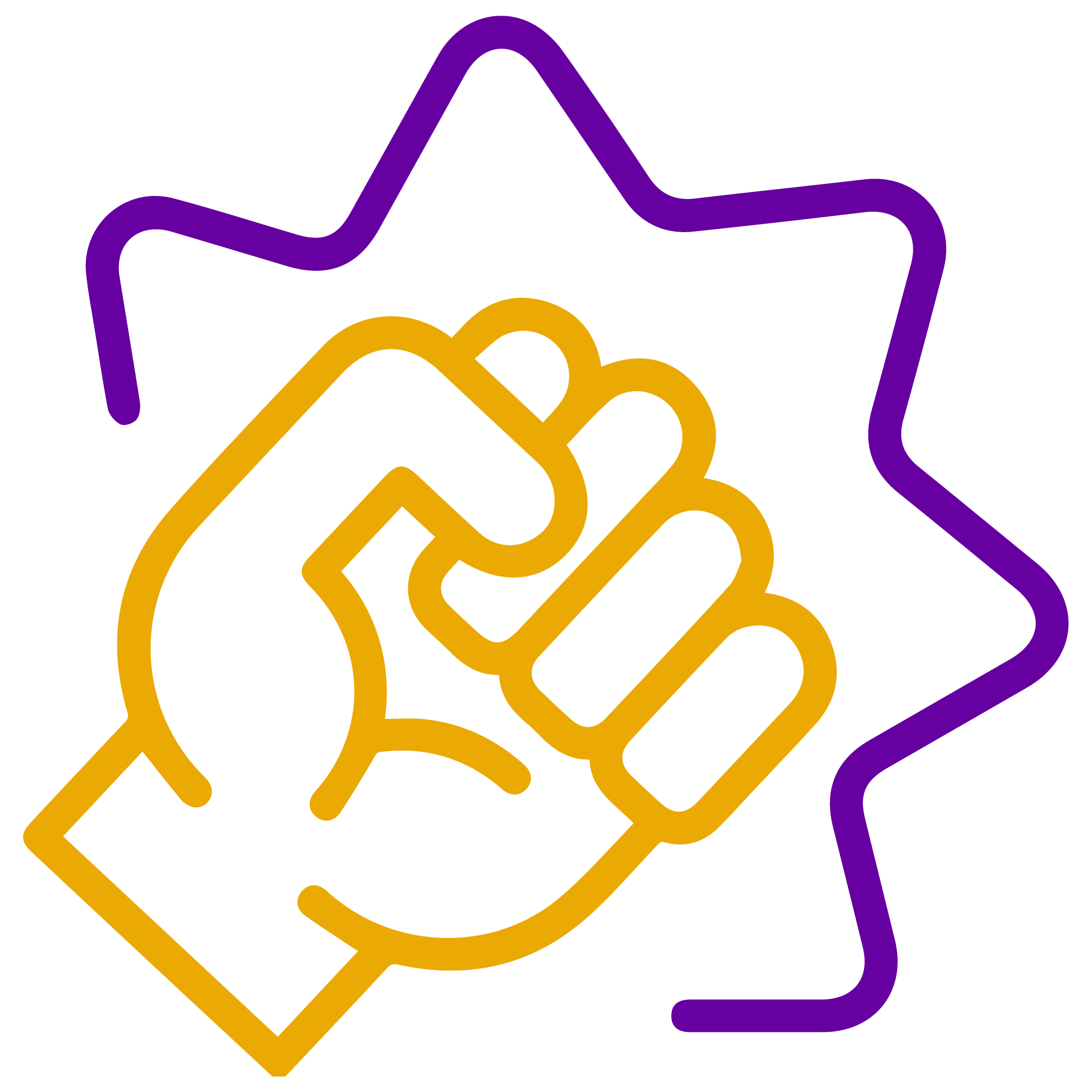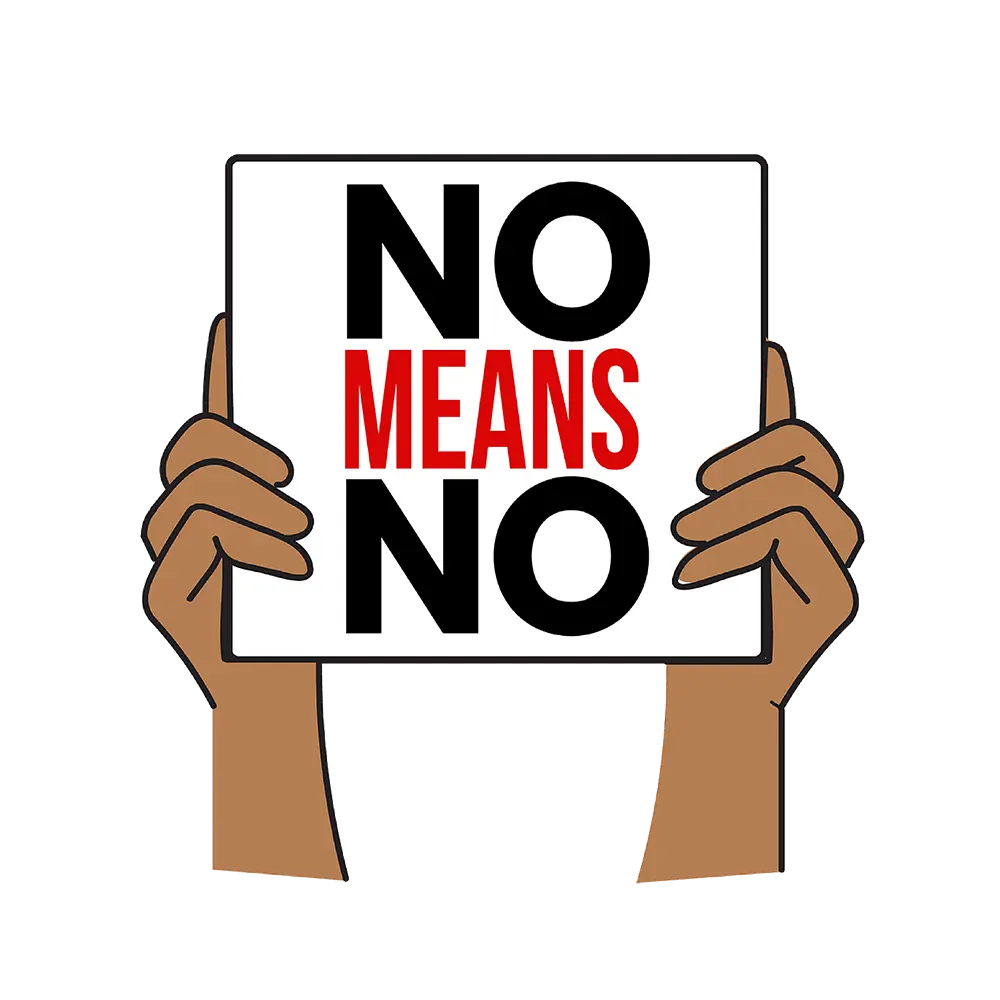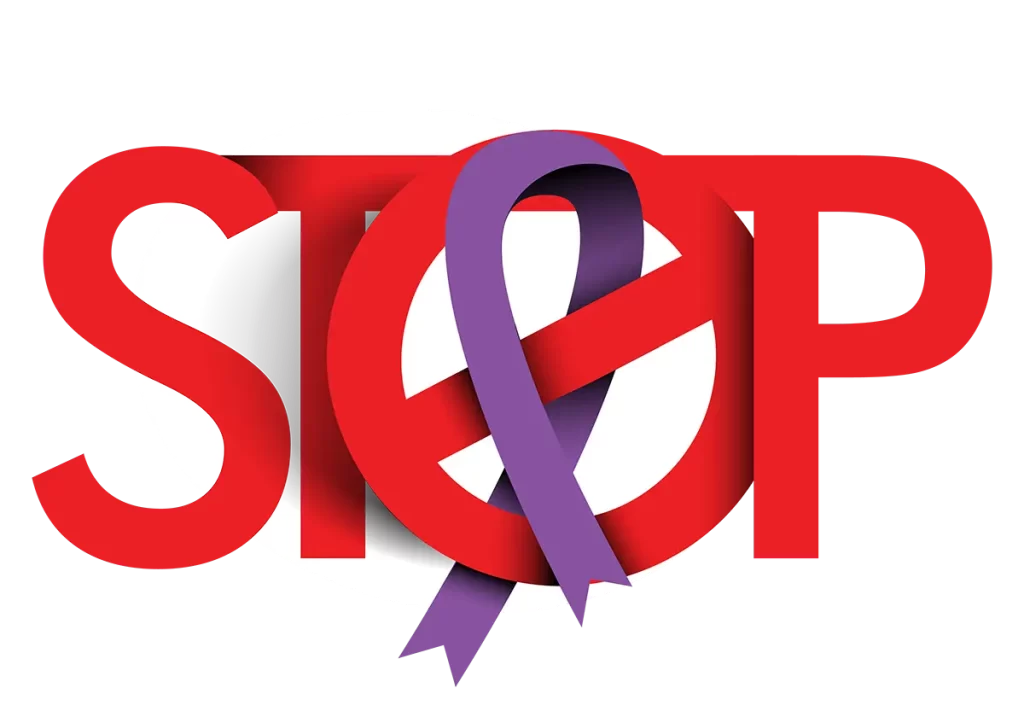
has suffered physical abuse at the hands of a spouse.

of South African women have experienced sexual and/or physical IPV in their lifetime.

of South African women have experienced sexual and/or physical IPV in their lifetime.

instances of domestic violence were recorded between July and September of 2021.

(7.7% more in the same period 2020).

respectively, from the second quarter of 2020.

raped between October and December of 2021. (Based on the third quarter of 2021)


Sexual violence is committed by and experienced by person/s of all genders however,
of women who have ever reported being raped.



Rape is defined as: Any act of sexual penetration with a complainant (survivor) that is unlawfully and purposefully committed without the complainant’s permission. This is in accordance with the Sexual Offences Act of December 2007.
Women, men, and children from all areas of life are all susceptible to rape. Nobody asks to be raped, and having intercourse without permission is rape.
The majority of rapes are carried out by individuals the victim knows; however, you might be raped by a stranger or someone you trust.
Rape isn’t about sex; it’s about control and power.
A crime of power, not of desire, is rape. It’s a violation of your human rights and is forbidden by law.
A rape is said to occur every 17 seconds in SA, where 1 in 3 women and 1 in 6 men are raped, 1 in 25 incidents are reported to the police, 45% of rapes in SA are classified as child rapes, and 50% of children in SA will experience abuse before the age of 18.
SA has the highest child and baby rape incidences in the world, and a South African woman’s chance of being raped is higher than her chance of learning to read.
Myths and preconceptions regarding rape are among the major issues our society is dealing with. These false notions have detrimental impacts on the community, preventing victims from receiving justice and healing, and letting rapists get away with their crimes.
To help victims find healing and justice, it’s crucial to understand the difference between a myth and the truth and to reject myths.
It’s rape if there was no consent! Consent must be freely granted in its entirety by a person who is capable of doing so.
The rapist does not become enamoured or lustful by the sight of a woman’s body or what she’s wearing. Rape is about wrath, hatred, power, and control.
In the majority of cases, the victim knew the rapist. According to Rape Crisis, 10% of victims are raped by strangers, while 90% are by somebody they know.
You have the right to refuse even in a relationship. If intercourse is forced after being refused, it’s rape.
If it was the first time, one can’t assume that it will always be OK. Every time, consent is required.

You can report irrespective of whether you want to lay a charge or not (laying a charge means you want the case to go to court).
It’s your responsibility to report the case, to prevent the rapist from hurting someone else!
Any sexual activity carried out against the victim’s will is sexual abuse.
This is the most well-known type of abuse since it purposely results in physical harm. This could involve physical violence including beating, kicking, strangling, property destruction, using a weapon, etc.
Taking advantage of a partner’s financial situation by managing the home budget and preventing them from using their own bank account or making purchases.
Occurs when one partner uses derogatory language, insults, jealousy, intimidation, humiliation, and other tactics to exert control over the other.
Any other controlling or abusive behaviour which poses a threat to your safety, health, or well-being.
You have the right to apply for a protection order at the police station or magistrate’s court or filing a criminal complaint at the closest police station.
A protection order is a court order for the abuse to stop against a person with whom you have had a domestic relationship. Additionally, it could stop them from enlisting anybody else’s assistance in their criminal activity. For your protection, a temporary restraining order may also be obtained at any hour of the day or night. Any domestic abuse victim may request a protection order.
If a child is too young, a parent, guardian, or any other individual acting on their behalf but with their consent, can apply for a protection order.

Despite being comparable, the two are perceived differently by most people. Domestic violence and adolescent dating abuse both involve abusive behaviours that are used to exert control over a victim. Abuse can take many forms, such as physical, emotional, verbal, and technological/cyber. Abuse of any kind may hurt and leave scars. You may get harmed without being beaten
Yes, abuse may occur in relationships with friends, family, and casual acquaintances. Even when you’re not dating someone, they might treat you badly.
Your friend might not be able to make the decision to go. Victims may feel ashamed and embarrassed. The abuser has gradually destroyed their self-esteem. Additionally, they might not be ready for word of the abuse to spread across their social group. Numerous factors contribute to victims’ refusal to “leave.” Leaving frequently does not guarantee an end to the violence. In actuality, when the victim leaves, the violence will worsen. Making a safety plan with a therapist, friend, or advocate is crucial for this reason.
As you talk to your friend, provide resources. Your friend needs a sympathetic ear that is free from criticism. Reassure her/him that you care about their physical and emotional well-being, and that what’s occurring is not their fault.
Dating abuse can have long-lasting impacts. Drug misuse, dropping out of school, depression and/or anxiety, eating disorders, and suicide attempts are more common in victims. Victims frequently feel alone and lose their sense of identity.
You can look for a variety of “red flags” in a potential abuser. Common signs include jealousy, controlling behaviour, unauthorized use of a cell phone or email, constant texts or calls, anger issues, separating you from friends or relatives, keeping an eye on you or questioning you constantly, and telling you what to do.
Because it’s embarrassing, a victim of abuse won’t tell anybody, not even their best friend. It’s possible that the person in line in front of you or the person sitting next to you in class is a victim or survivor.
There are several symptoms to look for that will give you a hint, even though
you may never be able to tell for sure if someone is being abused.
Some indications include: isolation, marks of injuries, fear, changes in
appearance and self-esteem, tries to hide activities from their partner, have to
get “permission” to engage in activities, and majority of the time is depressed or
in tears.
Gaslighting is a word used to describe a type of psychological and emotional abuse that causes victims to doubt their reality and sanity.
It is a strategy frequently employed by narcissists, psychopaths, or those suffering from behavioural problems to manipulate and control others.
It’s the least damaging but still very harmful. It’s employed to mask covert behaviours and fosters a strong sense of mistrust in interpersonal interactions
This can give the victim the impression that they’re losing control over reality. The capacity of a person to recognise what is true and to have faith in their own memories and judgement is frequently questioned and damaged.
This is when the abuser subtly assigns blame in an effort to defend their actions. This could happen when a dishonest partner exaggerates their spouse’s flaws.
Where the behaviour ranges from charm offensive, to pressure and manipulation and even bullying or violent behaviours.
The immediate symptoms include being agitated, feeling tense, losing focus and attention, getting frustrated with arguments, and even retaliating against friends or relatives who express worry.
Long-term effects might include psychological stress, despair, loneliness, and anxiety. One’s self-esteem and confidence might be impacted too.
If you always feel the need to apologise, if you think you can do nothing right, or if you frequently feel anxious or worried, you may be experiencing gaslighting in one of your relationships.
Ultimately, there’s hope for recovery and healing.
The victim must keep in mind that the abusive behaviour is not their fault. Additionally, they must refrain from debating the truth with the abusive individual and rather practise listening to their thoughts, feelings and instincts again.
The abuser must also stop the destructive behaviour and accept full accountability for the emotional abuse.
Finding a safe space to calm your thoughts and assess how you feel about yourself is also advised. Be mindful of your emotions.
Resources like counselling and support groups may be quite helpful in one’s healing.
Physical abuse, as the word suggests, is any intentional use of force against another person that causes physical hurt, trauma, or injury.
It may have negative effects on the survivor’s health, and in certain instances, it may result in a variety of psychological issues and difficulties. It’s frequently employed as a strategy by one person to take control of another.
Physical abuse can have both acute and chronic impacts. Unfortunately, physical abuse is often far-reaching and has an impact on both the victim and the abuser’s friends and/or loved ones.
The repeated degradation of another person’s mental health and well-being through non-physical actions is referred to as emotional abuse. A family member, friend, or romantic partner may still be emotionally abusing you even if they don’t use physical force.
Because the indications of emotional, verbal, and psychological abuse are typically less visible than those of physical abuse, they’re also more difficult to identify than physical abuse.
A relationship that’s emotionally abusive, however, can result in low self-esteem, PTSD, depression, and other mental health issues. The first step in helping yourself or someone else who is in an abusive relationship is being aware of the warning flags.
When someone is emotionally abusing you, they may insult you constantly even after you ask them to stop, or they may hold you to impossible standards and then belittle you when you fall short of them.
Even if there’s no disagreement, they could frequently curse or shout at you. They criticise or threaten you with words in an effort to get you to crumble or start doubting yourself
Those who engage in emotional abuse may employ humiliation as a strategy by making disparaging remarks about your looks, intelligence, or personal success.
When little insults are repeatedly directed at you, they can have a detrimental effect on your self-esteem.
This will be used by emotional abusers to persuade you to keep your relationship with them. All of this is a harmful tactic to keep you dependent on them.
Because you worry about the consequences of disagreeing with the other person in a close relationship, you find yourself giving in to their requests.
This indicates that they have the ability to intimidate you. It could appear as though you’re the target of unwarranted verbal abuse and threats.
These are harmful intimidation practises that may also result in physical violence.
This individual will strive to keep you apart from those who are close to you.
They don’t want people in your group to recognise any warning flags of abuse. If the other person wants to visit them, they can threaten to stop the relationship or prevent the development of new friendly relations
This is another way for someone to exert control over you by using the power of rejection. It causes you to feel insecure and guilty when you’re abruptly cut off from their support.
You rely on them for emotional support while you’re alone as well, and when they get distant from you, it might leave you spinning.
Another example of this is when someone rejects you in public or in front of friends and family as a form of punishment.
They reach out to you only to use you at the exploitation stage of emotional abuse.
When the tables are turned and you need their help, they provide little in return and become emotionally distant.
Emotional abusers can make you dependent on them for any decision, big or small. They’ll manipulate and gaslight you, which will make you doubt your own judgement.
You may be experiencing emotional abuse if you frequently worry that making a seemingly harmless decision would anger the other person.
If you’re in an abusive relationship, knowing and recognising the symptoms of emotional abuse is the first step in taking care of yourself. It’s crucial to take action and get the support you need and deserve.
Narcissistic abuse can come in many different forms, including insulting remarks, growing contempt, ignoring behaviour (such as the silent treatment or passive-aggression), triangulation, sabotage, downplay, and much more.
Many people are unsure if they’re a victim of narcissistic abuse. This can be greatly influenced by inconsistent thoughts, beliefs, or attitude change and the confusion that comes with abuse.
It might be difficult to understand toxic relationships at times. This occurs because the toxic individual will turn it around on you, place the blame, and refuse to take responsibility.
Keep in mind that if someone wrongs you and is unable to provide a sincere apology, and you continue to hang out with them, they will continue to wrong you. They won’t ever feel regret.
Narcissistic relationships are characterised by the individual getting worked up on hairline triggers that mature adults simply don’t get worked up over.
Additionally, they have a sense of entitlement and want special treatment, and if they don’t get it, they may be abrasive, demanding, harsh, and even explosive.
Even if you’re aware that you’re honest, have good communication skills, are empathetic, and get along with the majority of people, there’s someone that makes you feel your worst.
This often happens when your boundaries are broken and when standard human behaviour isn’t upheld.
Narcissists state how disloyal your accusations of them are when confronted, or they argue with you to manipulate you into something unwholesome.
This is due to the narcissist’s repeated accusations that you’re everything that they are and do, including missing moral character, compassion, and love for others, as well as being unfaithful, lying, and making everything about yourself.
Naturally, you’ll be furious and make a valiant effort to prove and convince them otherwise. You are prone to this narcissistic behaviour if you assume that the opinions of others determine your integrity, character, well-being, and safety.
Being close to a narcissist entails a lot of drama, rough edges, and, quite honestly, the constant threat of disaster.
Narcissists typically lack attention to detail, responsibility, and sensitivity. They fly high, seeking narcissistic attention while giving little to no effort to acting morally.
If one of these people is a part of your life, it’s likely that you’ll be helping them with their problems and dramas, paying their fines, and even lying for them to cover their tracks.
People with weak boundaries frequently become connected with narcissists. It’s tough for you to speak out, defend yourself, or set boundaries with this specific individual because you risk criticism, rejection, abandonment, or punishment if you do.
As a result, you give up attempting to emphasise your requirements in an effort to reduce the drama and mayhem that ensues.
Do you feel frenzied and unable to stop attempting to get in touch with or meet up with a narcissist, while knowing how much this is hurting you constantly?
How dependent we are on someone who abuses us so horribly may be horrifying.
It’s likely that anxiety, depression, as well as more serious conditions like fibromyalgia, adrenal problems, PTSD, and agoraphobia, begin to develop.
As the toxic person in your life consumes more of your energy and concentration, you begin to lose interest in the things, people, and self-care that used to give you energy.
You may begin to withdraw from society, lie to people, cover up, and feel even more alone in your traumatic sentiments and symptoms as a result of the overwhelming humiliation and agony.
There are many levels of narcissism, and some people may merely be ignorant and self-centered without necessarily having narcissistic personality disorder




